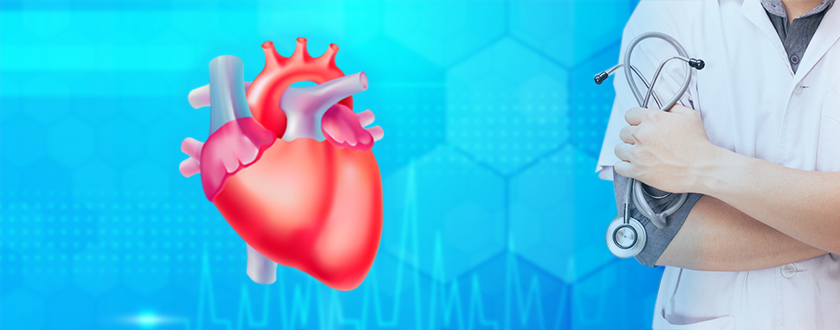Cardiology
- General Medicine & Internal Medicine
- General Surgery
- Critical Care & Emergency Medicine
- Orthopedics & Arthroscopic Surgery
- Joint Replacement surgery
- Obstetrics & Gynecology
- Pediatric Medicine & Pediatric Critical Care
- Pediatric Surgery
- Cardiology
- Endocrinology & Diabetology
- Nephrology
- Urology & Genitourinary Surgery
- Medical Gastroenterology
- Surgical Gastroenterology
- Neurology
- Neuro & Spine Surgery
- ENT
- Laparoscopic General Surgery
- Poly Trauma
- Opthamology
- Medical Oncology
- Surgical Oncology
- Plastic & Corrective Surgery
- Hepatology
- Dermatology
- Rheumatology
- Vascular Surgery
- Dental & Facio Maxillo Surgery
- Psychiatry & Family counseling
- Radiology
- Homeopathy
- Advanced Physiotherapy

CARDIOLOGY
Cardiology is a branch of internal medicine. A cardiologist is not the same as a cardiac surgeon. A cardiac surgeon opens the chest and performs heart surgery.
Our cardiologists are specialized in diagnosing and treating diseases of the cardiovascular system. The cardiologists here, carry out tests and perform some procedures, such as heart catheterizations, angioplasty, or inserting a pacemaker.
Heart diseases that our cardiologists can help with include:
- Atherosclerosis
- Atrial fibrillation
- Arrhythmias
- Congenital heart disease
- Coronary heart disease
- Congestive heart disease
- High blood cholesterol and triglycerides
- Hypertension
- Pericarditis
- Ventricular tachycardia
- High blood pressure, or hypertension
Our interventional cardiologist is specialised to carry out procedures such as angioplasties, stenting, valvuloplasties, congenital heart defect corrections, and coronary thrombectomies.
The equipment in a cath lab allows the doctor to see the state of the heart. We have facilities to perform the following tests with the most advanced techniques in the medical world.
Electrocardiogram (ECG or EKG): This records the electrical activity of the heart.
Ambulatory ECG: this records heart rhythms while the person carries out exercise or their regular activities. Small metal electrodes are stuck on the chest, and these are connected by wires to a Holter monitor, which records the rhythms.
An exercise test, or stress test: this shows the changes of heart rhythm when resting and exercising. It measures the performance and limitations of the heart.
Echocardiogram: this provides an ultrasound picture that shows the structure of the heart chambers and surrounding areas, and it can show how well the heart is working.
Echocardiography can measure how well the heart is pumping blood, known as cardiac output. It can detect inflammation around the heart, known as pericarditis. It can also identify structural abnormalities or infections of the heart valves.
Cardiac Electrophysiology
Cardiac electrophysiology is a subspecialty of cardiology. The physician looks at how electric currents inside the heart muscle tissue work, how the current spreads, and what the pattern of the currents mean.
The cardiologist may recommend a pacemaker.
Electrophysiology study (EPS) of the heart: in this test, a catheter is threaded into a vein at the top of the leg. Guided under fluoroscopy, it makes its way to the heart. The catheter measures the electrical signals within the heart.
An EPS of the heart can:
Help to show what is causing symptoms
Help decide if a patient needs a pacemaker
Help decide the best treatment for patients with arrhythmia, or abnormal heart rhythm
Determine how likely a patient is to experience tachycardia or an accelerated heartbeat
Our cardiac electrophysiologist can provide treatment for abnormal rhythms including cardiac ablation, implantable cardioverter defibrillators, or pacemakers.
